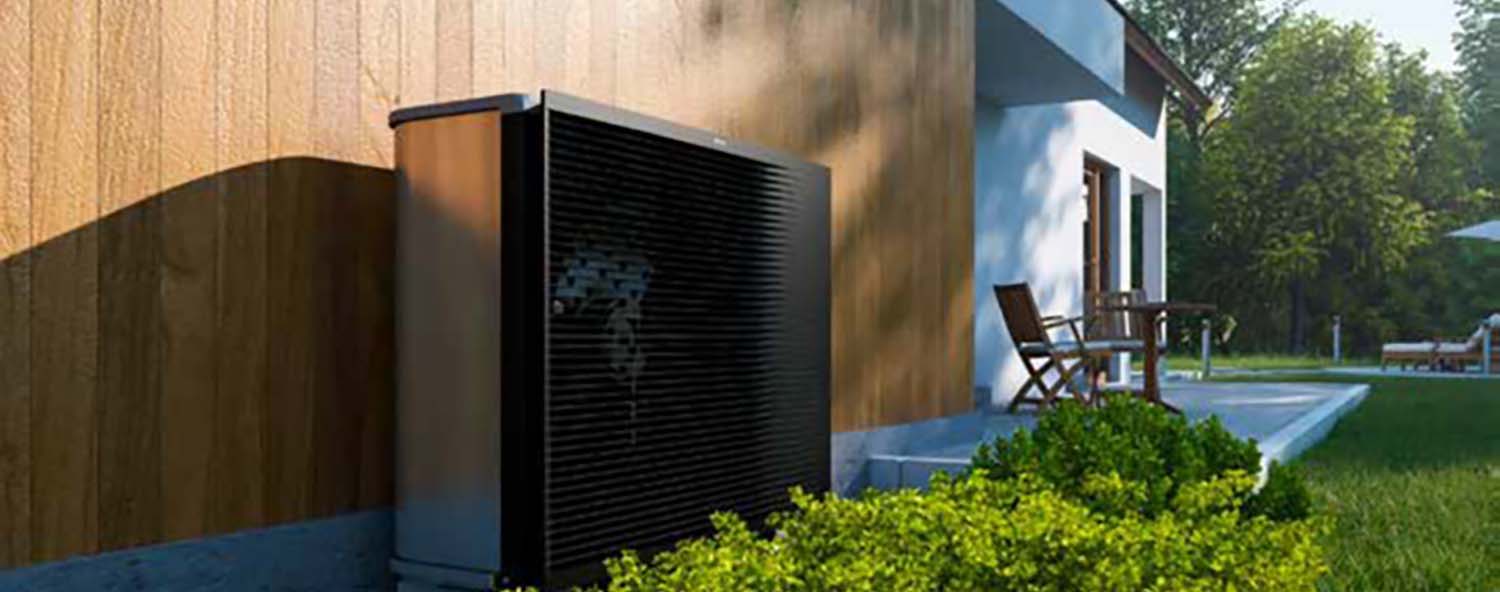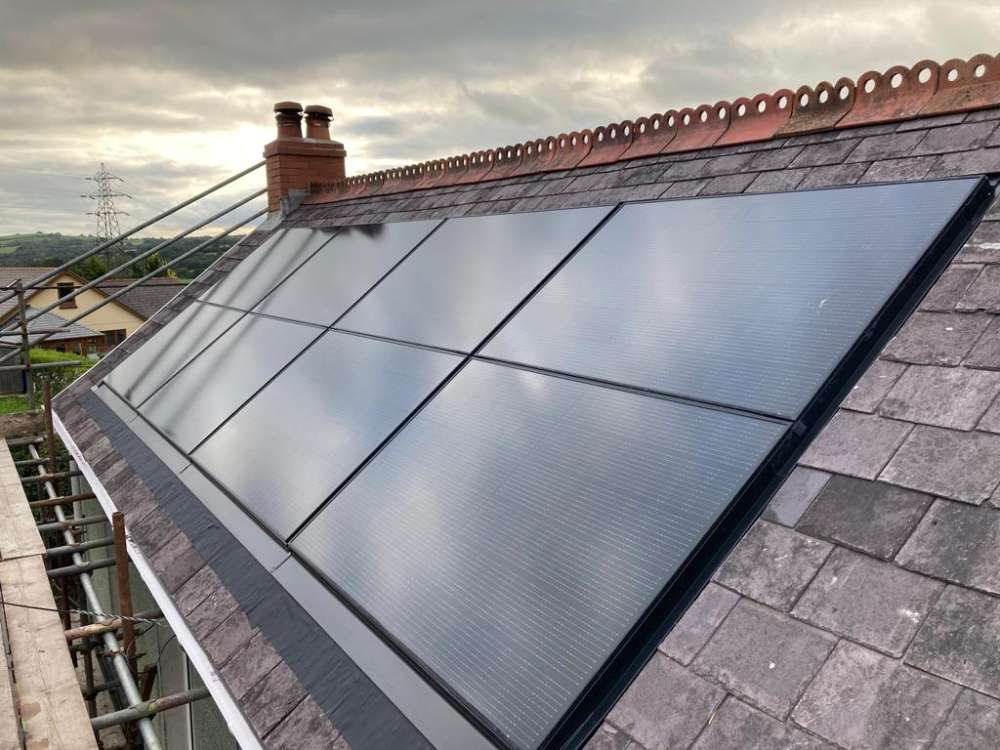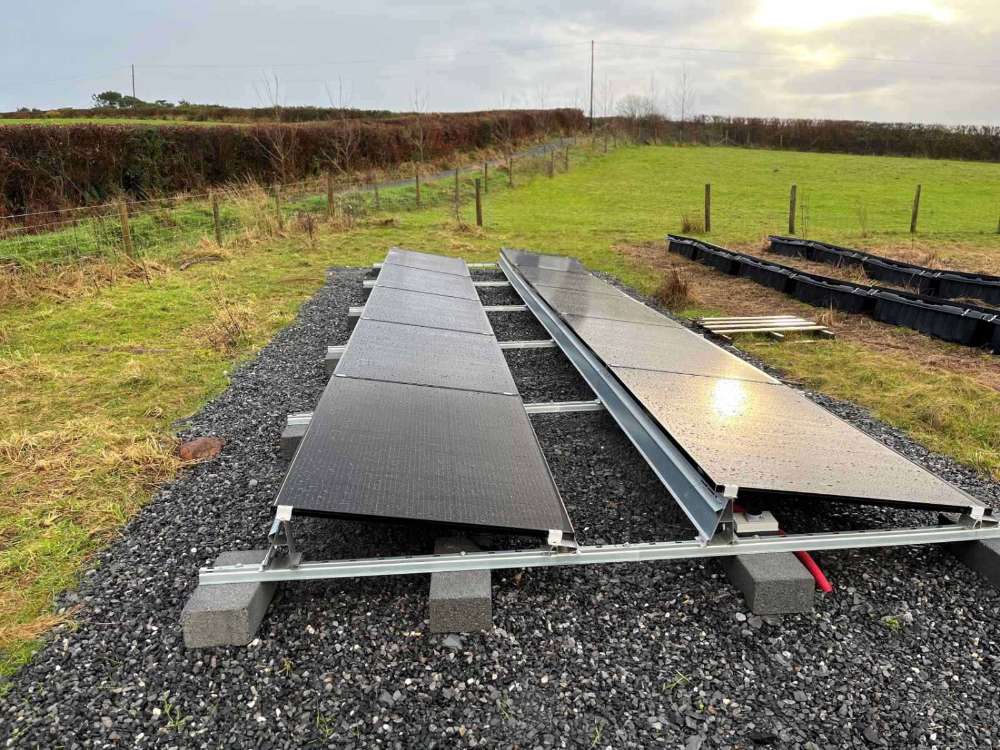Air Source Heat Pump with Solar Panels: Efficient, Sustainable Heating Across South Wales
Lower bills, greater comfort – powered by the sun.
At Solar Save Renewables, we specialise in installing high-performance air source heat pumps (ASHPs) paired with solar panels, helping homeowners and businesses across Carmarthenshire, Pembrokeshire, and Ceredigion reduce energy bills and cut carbon emissions. With over 12 years’ experience, we deliver tailored renewable heating solutions designed to maximise efficiency and savings.
Why Choose an Air Source Heat Pump?
💰 Cost Savings
Up to 400% Efficient: ASHPs deliver up to four times more heat energy than the electricity they consume, reducing running costs compared to traditional boilers.
🌱 Eco-Friendly
Lower your carbon footprint with a cleaner, greener alternative to gas or oil heating.
🏡 Year-Round Comfort
Works effectively even at temperatures as low as -15°C, providing consistent warmth and hot water throughout the year.
💷 Government Grants
Take advantage of the Boiler Upgrade Scheme grant of up to £7,500 towards installation costs.
Why Pair an Air Source Heat Pump with Solar Panels? (Save 60-70% on Bills)
Combining an air source heat pump with solar panels creates the ultimate energy-efficient home, reducing energy bills by 60-70% while maximising renewable energy use. Here's how this powerful combination works:
Maximise Savings & Efficiency
- Solar-powered operation: Solar panels offset 50-80% of your heat pump's electricity needs, dramatically reducing grid dependence
- Smart energy management: Modern systems automatically prioritize solar energy during daylight hours
- ROI boost: The payback period drops from 8 to 5 years when pairing solar with ASHPs
System Configuration
- Depends on roof space: The number of solar panels needed scales with your heat pump's capacity and home size
- Battery storage: Optional batteries store excess solar energy for nighttime heating
Example: A 3-bed home with a 9kW heat pump typically needs 12-16 solar panels (4kW system) to cover 60-80% of its energy needs.
How Air Source Heat Pumps Work
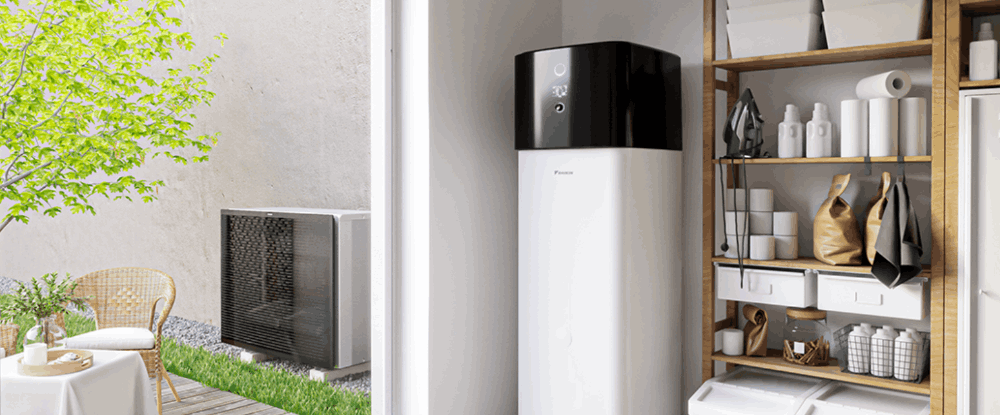
- Heat Extraction: Absorbs heat from outside air, even in cold temperatures
- Compression: Compressor increases the temperature of the refrigerant
- Heat Transfer: Warm air is circulated through your heating system
- Distribution: Delivers heat to radiators, underfloor heating and hot water
This process provides efficient, renewable heating with minimal electricity consumption.
Trusted Heat Pump Brands
Daikin
Samsung
Mitsubishi
Midea
Vaillant
Heat Pump vs Traditional Heating
| Feature | Air Source Heat Pump | Gas Boiler | Oil Boiler |
|---|---|---|---|
| Efficiency | 300-400% | 85-95% | 85-94% |
| Environmental Impact | Low carbon | High carbon | Very high carbon |
| Running Costs | Low | Moderate | High |
| Lifespan | 20-25 years | 10-15 years | 10-15 years |
Boiler Upgrade Scheme
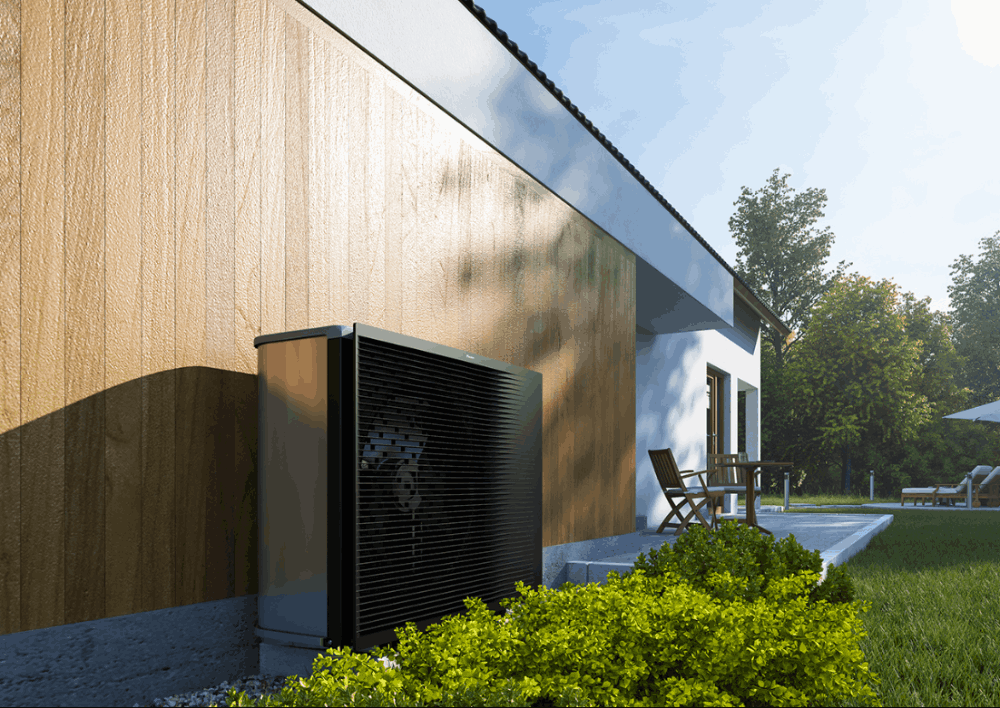
Save £7,500 on Your Heat Pump Installation
The UK government's Boiler Upgrade Scheme (BUS) provides grants to help homeowners in England and Wales install low carbon heating systems like air source heat pumps.
- £7,500 grant towards air source heat pump installation
- No need to be receiving benefits to qualify
- Your property must have a valid EPC with no outstanding recommendations
- We handle all the paperwork for you
FAQs: Air Source Heat Pumps with Solar Panels
How many solar panels do I need to run a heat pump?
A typical 3-bed home with a 9kW heat pump requires 12-16 solar panels (4kW system). Exact numbers depend on your roof space, heat pump size, and whether you add battery storage.
Can solar panels power a heat pump in winter?
Yes! Modern heat pumps work efficiently at -15°C. Solar panels produce less in winter, but systems are designed to use grid electricity as backup (still cheaper than gas).
Do I need batteries with solar panels and a heat pump?
Batteries store excess solar energy for nighttime use, but they're optional. For a complete renewable energy system, consider combining your heat pump with:
- Solar PV panels to generate free electricity
- Battery storage to maximize self-consumption (store 80%+ of your solar energy)
Typical hybrid system savings: Homes using solar panels + battery + heat pump reduce energy bills by 60-80% compared to gas heating.
Case Study: Trapp Solar PV, Battery Storage & Air Source Heat Pump
We recently completed a comprehensive renewable energy installation for a property in Carmarthenshire, combining solar PV panels, battery storage, and an air source heat pump to create a fully sustainable home energy system.
What Size Heat Pump Do You Need?
2-bed house/flat
5 kW system
3-bed house
9 kW system
4-5 bed house
9-16 kW system
How Many Solar Panels Power Your Heat Pump?
| Home Size | Heat Pump Size | Solar Panels Needed |
|---|---|---|
| 3-bed | 9kW | 12-16 panels (4kW system) |
*Actual numbers vary. Get a FREE custom quote.
What Our Customers Say
"Petar and his team at Solar Save Renewables recently fitted a new Daikin air source heat pump for us. He was very knowledgeable and explained every step of the process. The system has transformed our heating costs and we couldn't be happier."
- Rhodri Gomer, Property Owner
"We can't praise Solar Save Renewables enough. They were hard working, tidy and extremely considerate during our heat pump installation. We're more than satisfied with their service."
- Isaac Romanov, Property Owner
Ready for Renewable Heating?
Get your free, no-obligation heat pump consultation today:
📞 01558 328 437
📧
Serving Carmarthenshire, Pembrokeshire & Ceredigion
Our Trusted Partners & Manufacturers





We work exclusively with industry-leading manufacturers to deliver the highest quality renewable energy solutions.

 PV Solar Panels & Battery Storage
PV Solar Panels & Battery Storage Air Source Heat Pumps
Air Source Heat Pumps Solar Thermal
Solar Thermal Electric Vehicle Charging
Electric Vehicle Charging Bespoke Off-grid Heating & Electric Solutions
Bespoke Off-grid Heating & Electric Solutions